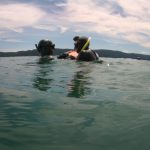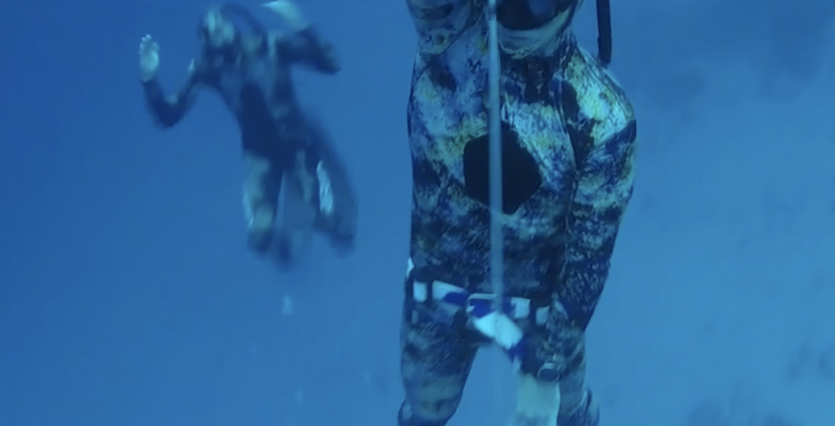When I originally wrote this article, it was about a recent freedive trip to Hawaii that included both training and recreation. While putting the finishing touches on it, I received a phone call from a friend of mine who was eager to get one more day of spearfishing in before the season for cabezon closed in Oregon. He asked if I could join him, and while I really wanted to, I had a course to teach the following day and couldn’t make it out. “Oh well,” he said. “Solo mission it is; you know I’m safe.” I cautioned him and told him I didn’t want him to be one of the statistics that give freediving a bad name, but he was having none of it. There was cabezon to be had. The conversation bothered me for the rest of the evening, and as I went back to proof my article, my mind started wandering, and I fixated on how often I see people make safety concessions when they go on a dive trip.

I love teaching people about freediving and watching them exceed their own expectations. After training a diver, it is very rewarding to have them come in excited for their first dive travel. Seeing people take and use their skills both in the community and beyond really makes me happy. When students come into prep for a trip, inevitably they ask: “How do I get my gear there? Can I carry on my long fins?” Yes, you can carry on your long fins, By the way, but only if you want to be asked about them constantly for your entire trip. Once we cover the basics of how to get the gear there, I always turn the conversation to more of the logistics that go into dive planning. Questions about dive sites and dive buddies typically are brushed off initially. Most often this is a family trip to someplace warm, and none of the others are freedivers. Usually, the plan is just to get in the water and “dive conservatively.” And “I won’t push it.”
Still brewing over my phone call with my friend, I flashed back to a conversation I had with him a few months back. He had recently returned from a warm-water trip and actually thanked me for the safety training and the emphasis on diving with a buddy. He told me that he was 100 percent convinced that he needed to buddy dive and practice one-up-one-down. On his trip, he was diving with a buddy and surfaced after a long drop to see that his buddy was not watching him. He went to say something to his buddy and discovered that he couldn’t speak. The buddy was having a minor loss of motor control (LMC, or Samba). He was able to recover on his own without the LMC progressing further. He told me how once the buddy regained the ability to speak, he let his buddy have it and reminded him what it meant to safety your buddy. It scared him straight, at least for a little while.
Whenever divers come in and talk about dive travel, I make sure they are reminded of the risks associated with solo breath-hold diving. For many, though, the prospect of their first warm-water trip or the thrill of the hunt is too great to pass up.

No fish or destination is worth your life. It very well might be that this could be your only opportunity to dive in Tahiti (or wherever). It also could be that it is your only opportunity to have a diving accident in Tahiti (or wherever). If you put safety practices to use at home because you know they could save your life, why throw them out when you are on a trip? For divers who talk to me before a trip, I do my very best to put them in touch with the local dive community and help them make connections with experienced dive buddies for their trip. Diving is fun, and most divers are passionate about it and enjoy sharing it with friends and newcomers. With modern technology and social media, there is no reason not to try to connect with divers in the area when you are going on a trip.
The day after our phone call, my buddy sent me pictures of his massive cabezon and came by the shop to get an official weight on it to see about submitting it for a world record. Another solo dive without incident and mission accomplished was taken as more evidence that he is just fine to solo dive “conservatively.” I am going to continue to work on him and help as many new divers as I can take their safety seriously and in doing so protect our sports.
Please remember to take your training with you when you travel for diving. Encourage your community to do the same. A freediving colleague recently went on vacation and wanted to do some shallow fun dives on scuba. He is a former scuba instructor who hadn’t been diving with tanks for years. When he arrived, he did a refresher and made multiple posts about it. Even though his skills all checked out fine and the refresher was a breeze, he led by example and showed his sphere of influence that it is important to dive within your limits and refresh if you’ve been out of the practice for a while. Whether it is scuba diving or freediving, you don’t need to seize your only opportunity to have a diving accident at some new exotic location.


